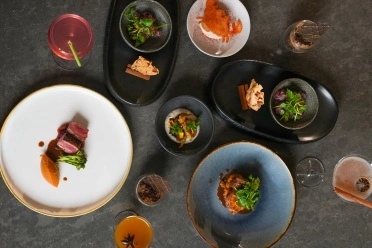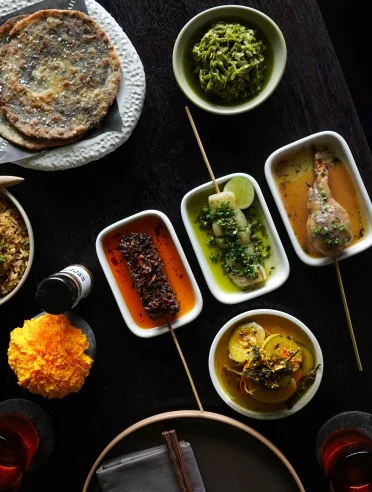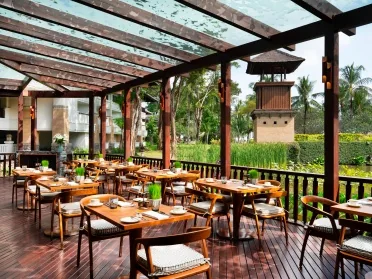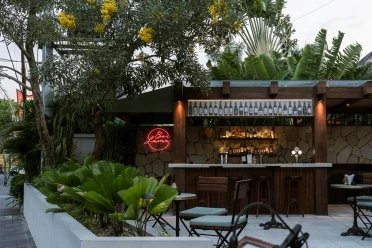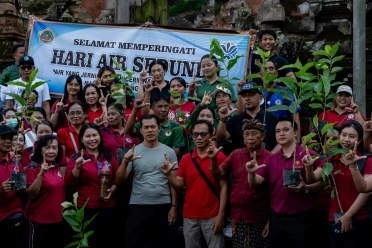Bringing his unique blend of creativity and precision, Chef Suhaimi Atas has swiftly risen as a standout figure in the island’s culinary world. The Sumatran-born chef, renowned for his innovative approach and commitment to using only the finest ingredients, has elevated dining experiences at Holiday Inn Resort Bali Canggu. His exceptional ability to fuse traditional flavors with contemporary techniques at the resort’s Roomah Restaurant has both enchanted guests and set new benchmarks for culinary excellence. As his reputation continues to soar, Chef Suhaimi’s artistry is leaving an indelible mark on Bali’s thriving restaurant scene. In this exclusive feature with What's New Bali, Chef Suhaimi reflects on some of the most remarkable milestones of his vibrant career. Read the full interview here!
The Art of Fusion: Chef Suhaimi Atas on Redefining Culinary Excellence in Holiday Inn Resort Bali Canggu
You have an impressive culinary career that spans several countries and cuisines. What initially inspired you to pursue a career as a chef, and how did you begin your journey in the culinary world?
My inspiration came when I was 16, living in my village on Bangka Island. There weren’t many hotels or standalone restaurants growing up because the hospitality industry hadn’t developed like it had in Bali, Jakarta, or Surabaya. I saw the need for growth and decided to become a chef to help develop my island. My mother was also a big influence; I believe the love and care in her cooking is different from anything in hospitality. Another key figure was my previous executive chef, Holger Jackisch, a Michelin-starred chef from London. He was a mentor to me, and I worked with him and his team, including Gordon Ramsay, in Dubai. That experience was pivotal in shaping my culinary journey, which truly began at Madinat Jumeirah Dubai in 2002.
Throughout your career, you’ve worked at prestigious establishments such as Dushanbe Serena Hotel, Hilton Garden Inn, and Buddha Bar Marrakech. How have these experiences shaped your culinary style and philosophy today?
My philosophy centers around developing local talent. Each country has its own unique culture, and I learned to observe and adapt, focusing on empowering local teams. Without local people, my success would not have been possible. I've realized that understanding the character and heart of the people is key to achieving excellence. For example, Bali has different local traits depending on the area—working in Canggu is different from working in Nusa Dua. I’ve taken this experience from across different countries and incorporated it into how I lead teams today.
At Roomah Restaurant of Holiday Inn Resort Bali Canggu, you’ve been involved in new menu development and hiring the pre-opening team. Can you share your vision for the culinary offerings at this resort and what sets it apart from other dining experiences in Bali?
Canggu’s market is primarily young expatriates and travelers, so I’ve tailored the menu to fit this demographic. Unlike other hotels that focus on full buffet sets, I’ve introduced a semi-breakfast buffet concept with fresh, homemade food, such as granola, bread, and even homemade spices like Cajun or Indian masala powder. My vision is to bring a unique blend of flavors—Southeast Asian, Central Asian, and European—that are freshly prepared and designed to make the guest happy. It’s about offering something different while focusing on quality and freshness.
You have experience working with a wide variety of cuisines, from local Asiatic and Peruvian to Japanese and Russian dishes. How do you approach creating a menu that appeals to a diverse range of guests while staying true to your culinary roots?
I always start with local ingredients, believing that they bring something unique to each dish. My approach combines modern culinary techniques with traditional roots. For example, many guests in Canggu prefer less spicy food, so I’ve tailored the spice levels accordingly, keeping them mild while still incorporating Southeast Asian flavors. The menu offers vegan, gluten-free, and lactose-free options alongside pork and alcohol, ensuring there’s something for everyone. This careful balance of international flavors with local ingredients allows me to create dishes that appeal to a diverse audience.
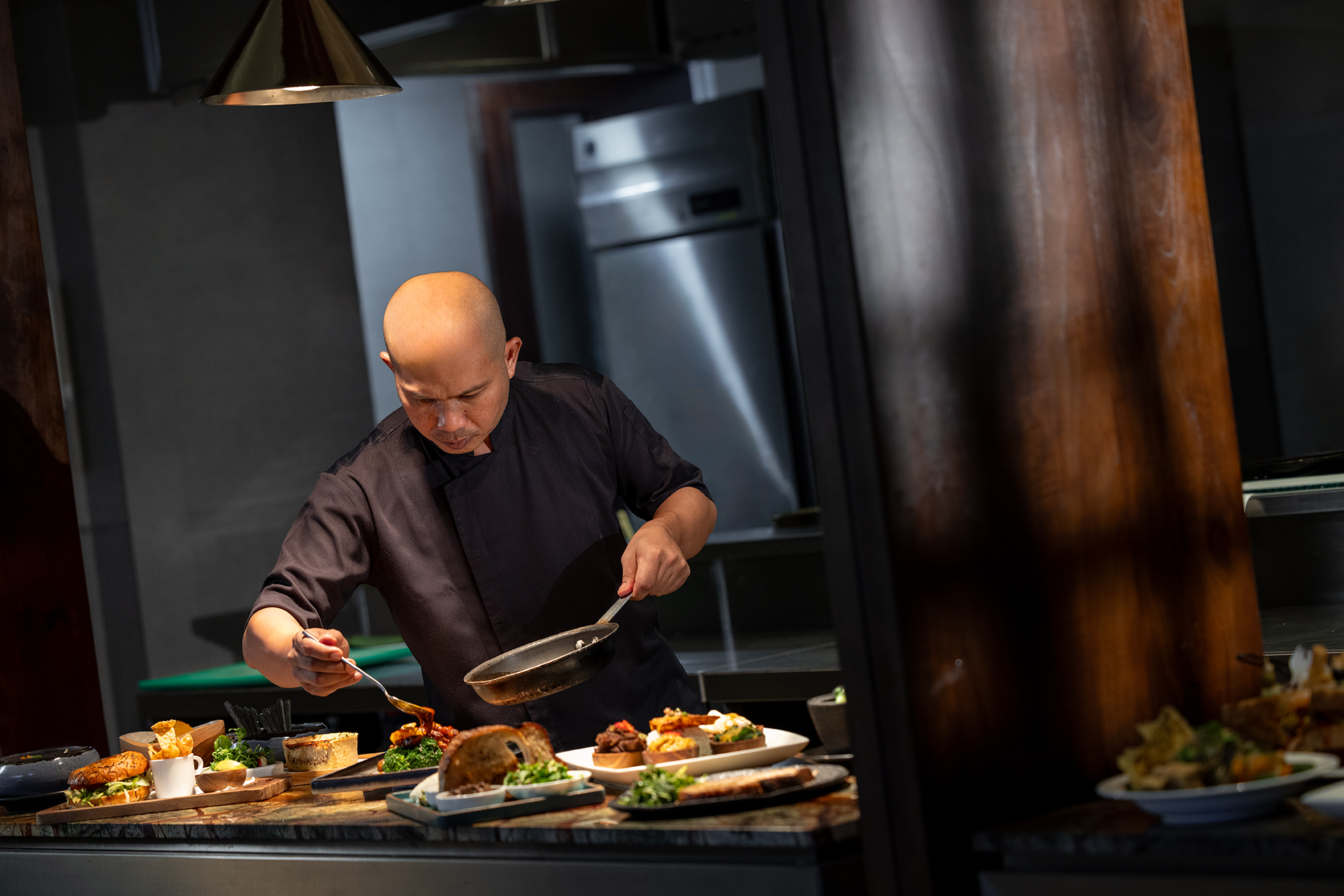
You've been recognized with numerous awards, such as the Emirates Culinary Guilds medals and the Best Teamwork Award at Hilton Garden Inn Bali. What do these accolades mean to you, and how do you maintain such a high standard of excellence in your work?
For me, the true achievement isn’t the awards, but the consistency of product and quality that my team maintains, even in my absence. I’m proud that my kitchen team can uphold the standards we’ve set. The key to success is training, development, and continuous learning—not just in food presentation, but in how we deliver the service. I pay close attention to every guest, knowing their preferences and tailoring their experience. It’s this detail-oriented approach and passing on my knowledge that allows us to maintain excellence.
Managing a kitchen involves not only creativity but also strong leadership and organizational skills. How do you ensure that your team stays motivated, cohesive, and focused on delivering the best possible dining experience for your guests?
Discipline is number one. My team knows that they need to be ready in the kitchen on time, properly dressed, and focused. But it’s also important to have fun in the kitchen, even though I run a strict operation. I’ve found that a happy kitchen produces better food. I ensure my team enjoys their work while maintaining discipline, and we keep things flexible to reduce pressure. The result is a kitchen environment where food is cooked with heart, and the team remains motivated to deliver their best.
Outside the kitchen, you enjoy traveling, hiking, and listening to music. How do these personal interests influence your culinary creations, and do you find inspiration for new dishes from your hobbies?
Absolutely. My travels and hobbies inspire many of my dishes. For instance, I created a dish called "drunken chicken salad" after a night out clubbing, which combines chicken with liquor-infused flavors. I also once created a salad inspired by the greenery I saw while hiking in Kintamani. When I travel, I prefer to learn recipes from local people, not chefs. Whether it’s Tom Yam from a village in Thailand or a traditional Russian dish, I believe in experiencing the true essence of a cuisine to create authentic dishes.
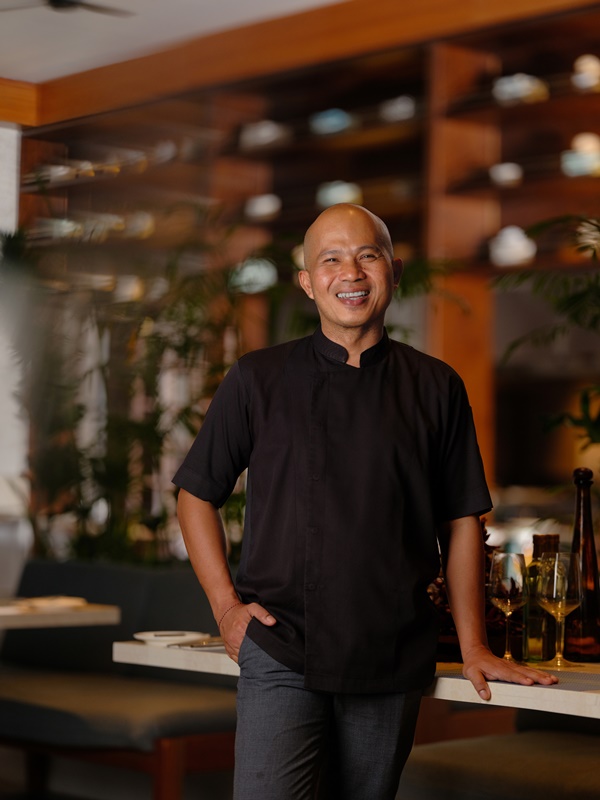
Looking ahead, what are your future goals as an Executive Chef, both at Holiday Inn Resort Bali Canggu and in your broader culinary career? Are there any particular trends or innovations in the culinary world that excite you right now?
On a personal level, my long-term goal is to open my own standalone restaurant, with an atmosphere that reflects my brand and culinary style. I’m also passionate about seeing my junior staff rise through the ranks to become executive chefs or even general managers, as many of my former team members have done. As for culinary trends, I’m intrigued by the growing fusion of Asiatic cuisines, where Southeast Asian flavors are combined with French techniques. This blend is becoming increasingly popular in places like Morocco and Russia, and it’s exciting to see how these flavors are evolving globally.



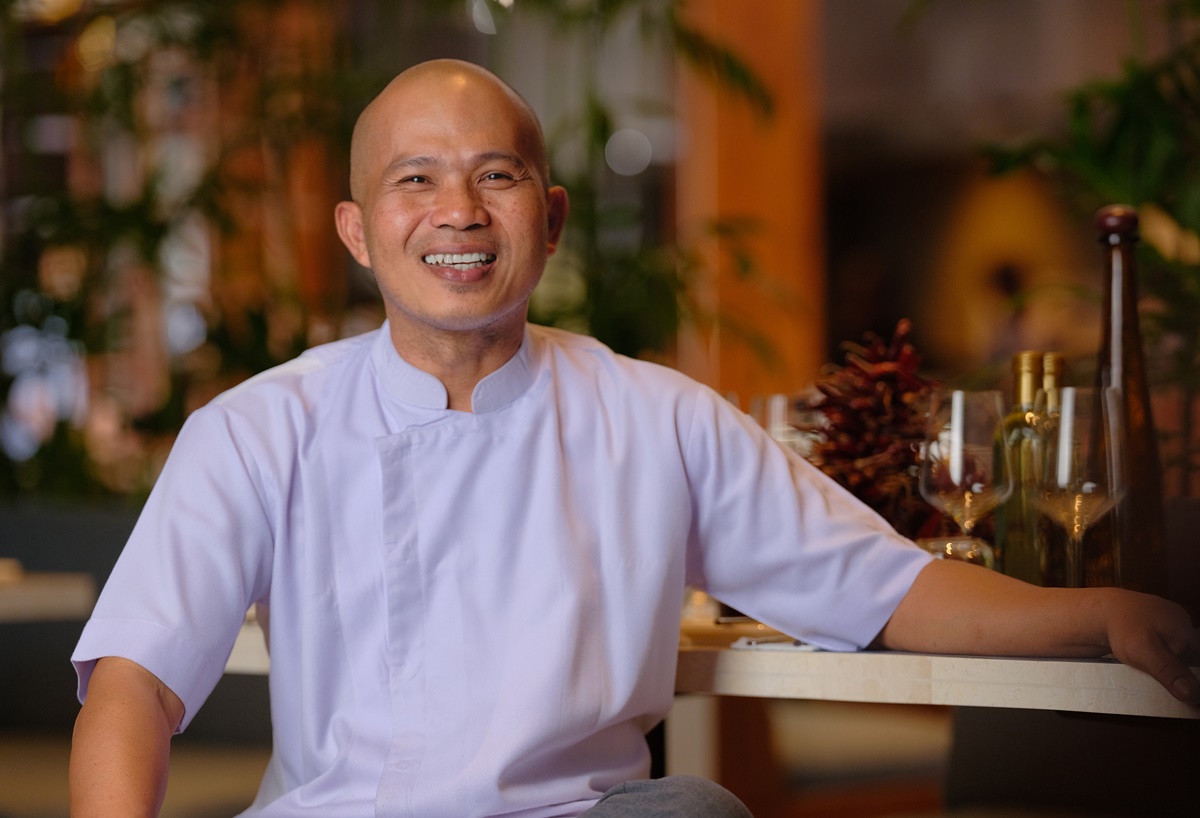
 Billy Bagus
Billy Bagus
 Oct 14, 2024
Oct 14, 2024
